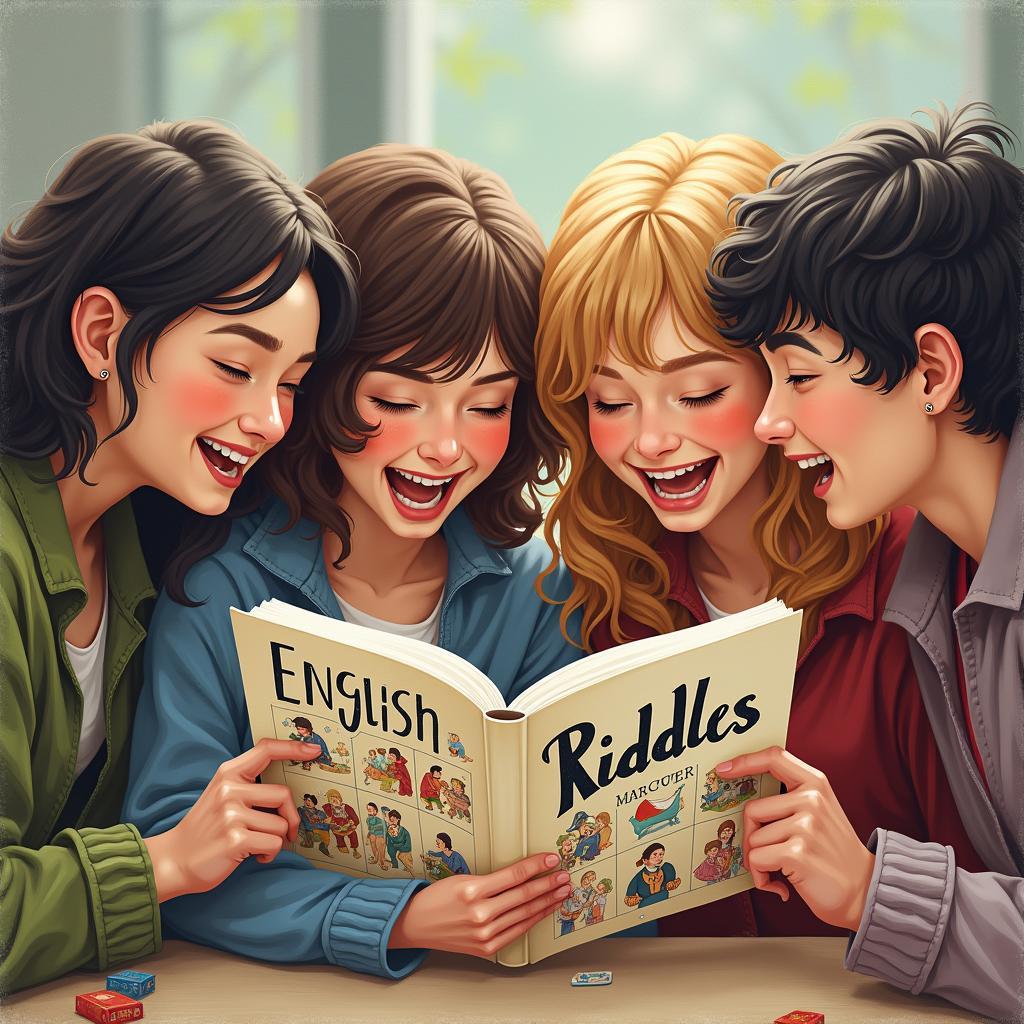
“Nhung Cau Do Vui Bang Tieng Anh” – a phrase that sparks curiosity and promises a delightful challenge. Whether you’re a language enthusiast looking to test your skills or simply searching for some lighthearted fun, English riddles offer a unique way to engage your mind and expand your vocabulary. But what exactly makes these riddles so captivating? Let’s delve into the fascinating world of English riddles and discover the joy they bring.
Why We Love a Good Riddle: Unraveling the Appeal
Riddles, regardless of language, have a timeless appeal that transcends age and culture. They present us with a puzzle, a miniature mystery begging to be solved. This element of challenge, combined with the satisfaction of finding the answer, is what makes riddles so addictive.
English riddles, in particular, offer a unique opportunity to play with the nuances of the language. They often rely on wordplay, double meanings, and metaphors, encouraging you to think outside the box and view familiar words in a new light. This playful exploration of language not only enhances your understanding of English but also tickles your funny bone along the way.
 english-riddles-fun
english-riddles-fun
Types of English Riddles: From Classic Conundrums to Clever Jokes
The world of English riddles is incredibly diverse, encompassing a wide range of styles and complexities. Here are some popular categories you’re likely to encounter:
- What am I? riddles: These often describe an object or concept using metaphorical language, challenging you to guess the answer based on the clues provided.
- Wordplay riddles: These riddles play with the multiple meanings of words or their sounds, creating a humorous and thought-provoking puzzle.
- Logic riddles: These riddles present a scenario that requires logical deduction and critical thinking to arrive at the solution.
- Trick questions: As the name suggests, these riddles aim to trick you with their wording, often leading you towards an obvious but incorrect answer.
Unlocking the Fun: Tips for Solving English Riddles
While some riddles may seem impossible at first glance, there are a few strategies you can employ to crack the code:
- Pay attention to every word: Riddles are often deliberately worded to mislead, so carefully consider the meaning of each word and phrase.
- Think outside the box: Don’t limit yourself to literal interpretations. Riddles often rely on metaphors, analogies, and abstract thinking.
- Break it down: If the riddle seems overwhelming, try breaking it down into smaller parts and analyzing each clue separately.
- Don’t be afraid to ask for help: Sometimes, a fresh perspective is all it takes to solve a particularly tricky riddle.
Embracing the Challenge: The Rewards of “Nhung Cau Do Vui Bang Tieng Anh”
Beyond the sheer enjoyment of solving them, “nhung cau do vui bang tieng anh” offer a multitude of benefits:
- Language learning: Riddles expose you to new vocabulary, grammar structures, and idiomatic expressions, making them a fun and engaging way to improve your English skills.
- Cognitive development: Riddles exercise your brain, enhancing critical thinking, problem-solving, and creative thinking abilities.
- Social interaction: Riddles are a great way to spark conversations, share laughter, and bond with friends and family.
 family-fun-riddles
family-fun-riddles
Conclusion: Keep the Laughter and Learning Going
“Nhung cau do vui bang tieng anh” offer a delightful blend of entertainment and education. Whether you’re a seasoned riddle solver or just starting, embrace the challenge, let your mind wander, and most importantly, have fun with it! The world of English riddles is vast and waiting to be explored.
For more fun and engaging content, check out our other articles:
Contact us for support: Phone Number: 02543731115, Email: gamevui@gmail.com Or visit us at: G55W+PWG, 686 Đ. Võ Văn Kiệt, Long Tâm, Bà Rịa, Bà Rịa – Vũng Tàu 790000, Việt Nam. We have a 24/7 customer support team.